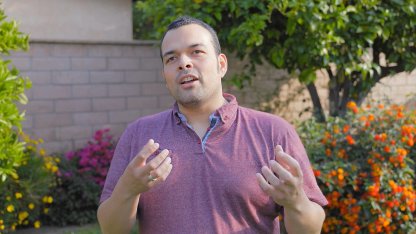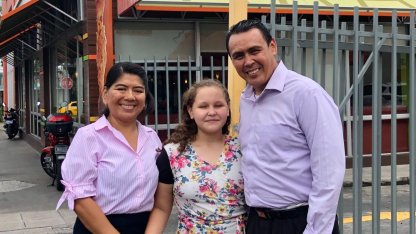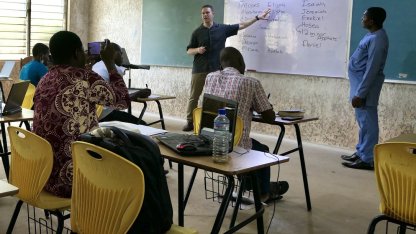The Earthquake
Perhaps the most rewarding session for me came near the very end of class. It had been a long week. After lunch on Friday we had about an hour left to go and just a couple more attributes to cover. Having looked at so many biblical texts and communicated so much information, I was growing weary. Moreover, I feared the students were saturated and exhausted. Next up — God’s sovereignty. Always a controversial topic in America, I had observed that in the fatalistic culture of Haiti, it was just accepted with little discussion of the implications or applications of the doctrine. How could I take these students further in their understanding of such a difficult doctrine at the end of a long week? As Gami finished his teaching I drafted some notes, definitions, and texts and basically just resolved to give it my best shot — if the students didn’t hit the ball back to me on this one, we would just have to pray and close.
We started in Psalm 135 by speaking about God’s freedom to do whatever he wants. We talked about his choosing Jacob (i.e., Israel), destroying pagan nations like Egypt, and sending both rain and lightning. I asked if it was fair to choose Israel and destroy Egypt? Of course, they said. They said that all Egyptians were implicated in the national evil. OK. Well, what about all the texts (e.g., Deut 7) that say God did not choose Israel because they were bigger or better, or because of anything about themselves at all? Then we turned to Romans 9 — before the twins were even born God said, “Jacob I have loved, but Esau I have hated.” They asked if the Hebrew actually said “hated.” They decided that God knew in advance the good things that Jacob would do and the bad things that Esau would do and so picked them that way, but we soon realized that the text won’t allow for that. Moreover, they realized this theory broke down in their own lives because they could not in good conscience suggest that God chose them because he knew them to be better than anyone else. Finally, we were left with nothing but the inexplicable electing love of God. We talked about how this love humbles us, motivates us to evangelism, and comforts us.
At this point, I decided to do what I had been scared to do all week — bring up the earthquake. How do you guys process God’s sovereignty in light of such a thing, I asked? Several of the students could not hold back tears during the discussion. Statistically speaking, almost everybody in the room would have lost a loved one or a friend, if not several. Their honesty was bracing. There were no easy answers, but there was much faith. I really can’t understand it — but it moved me. Including the earthquake in God’s sovereign plan seemed awful, but the alternative was hopelessness. Best to leave the secret things to God and trust the LORD who chose us because he loved us and for no other reason.



